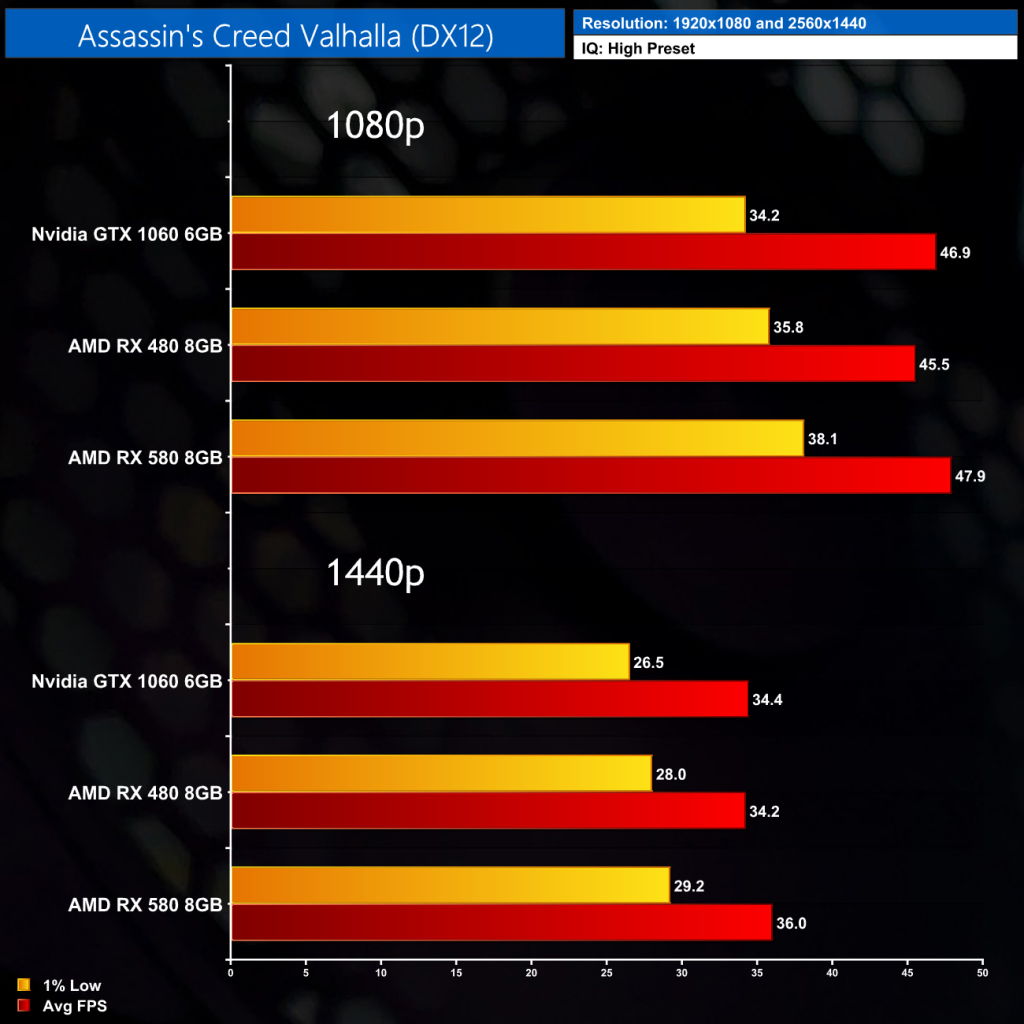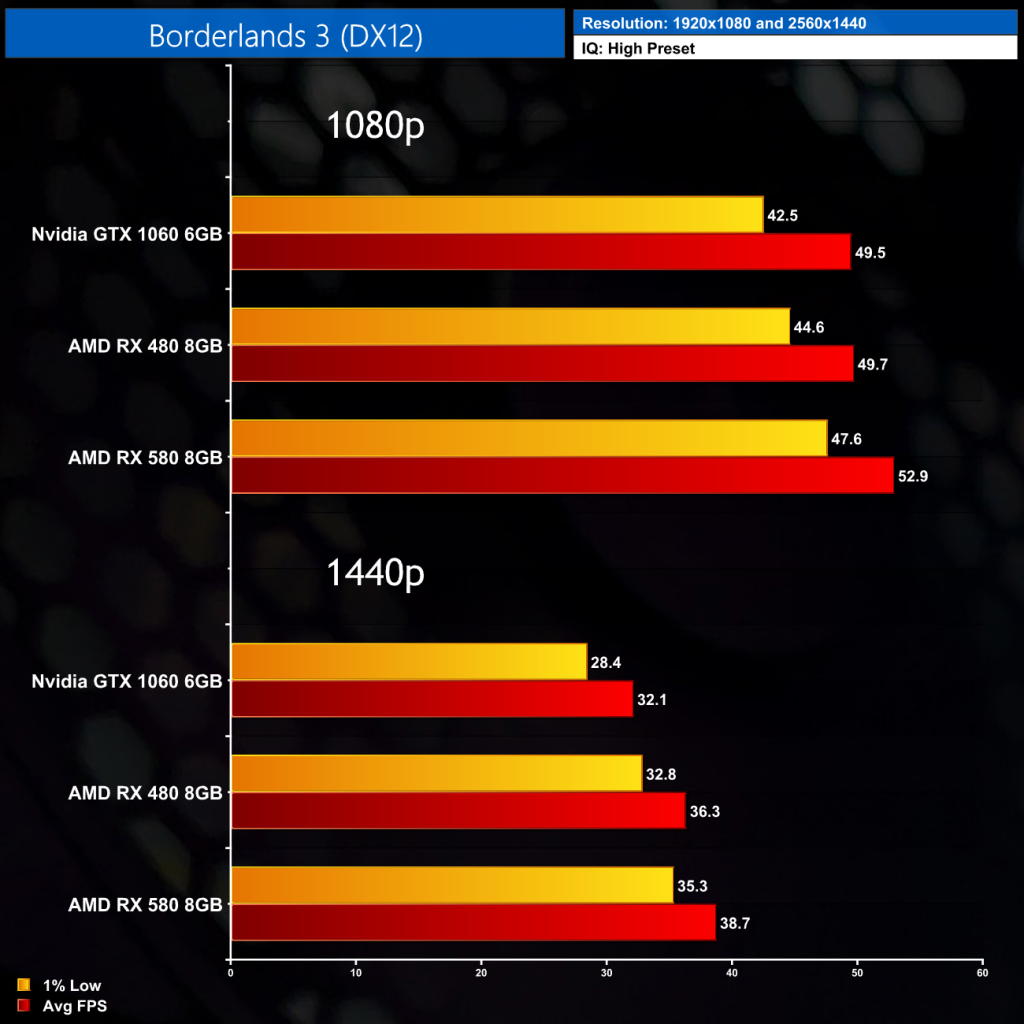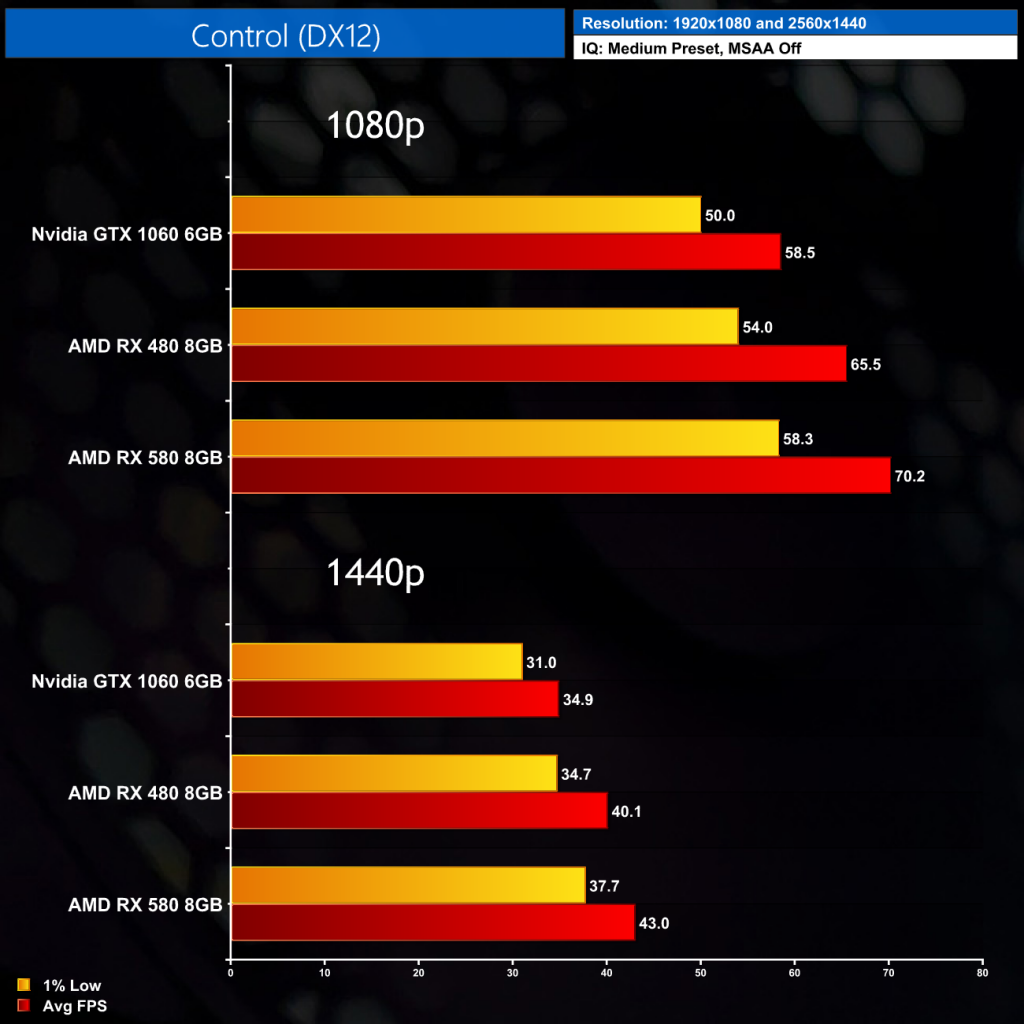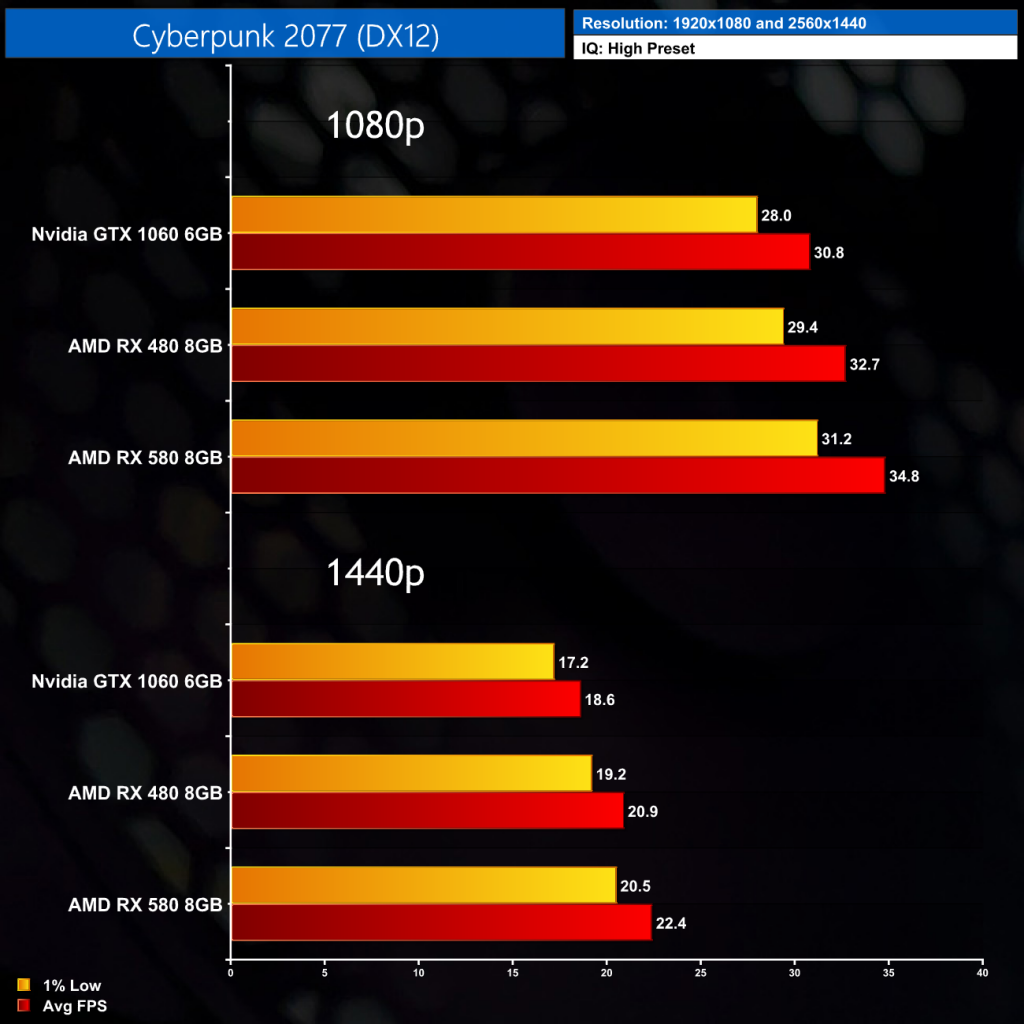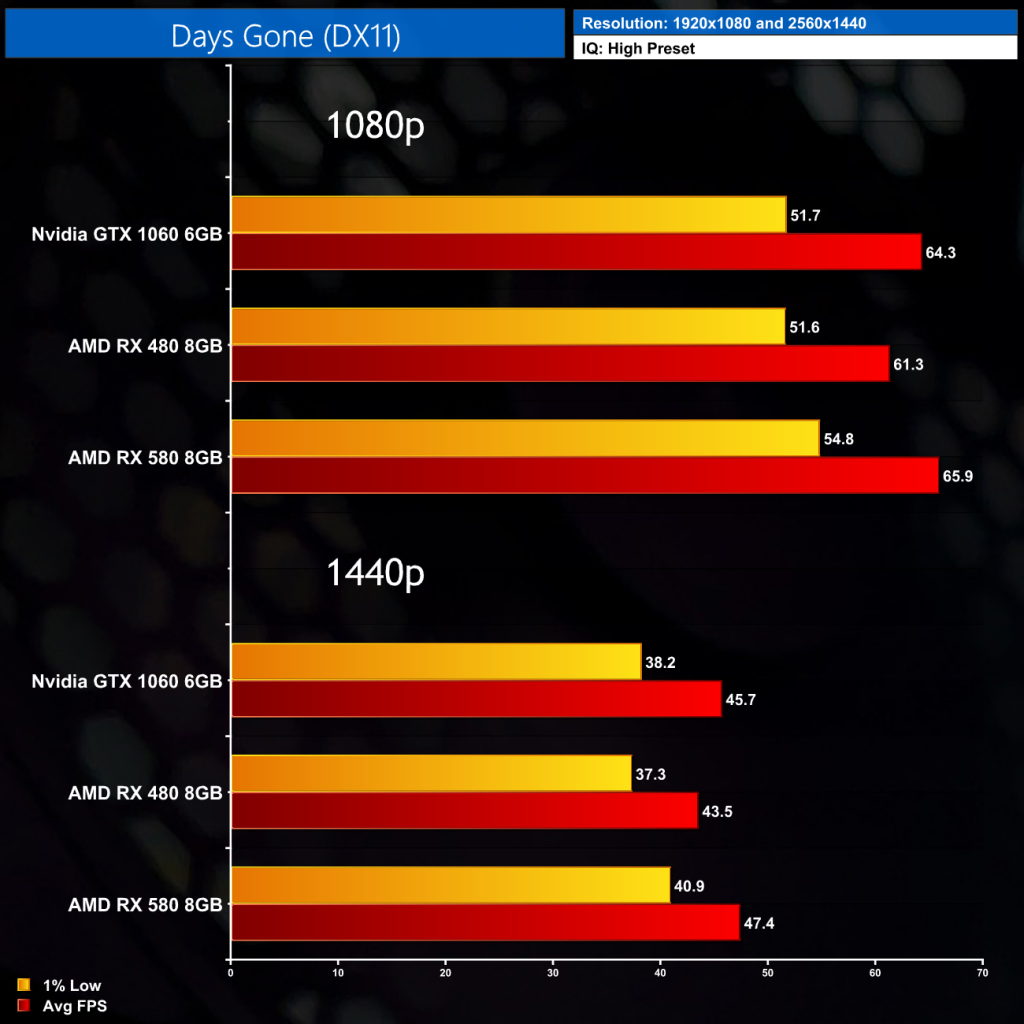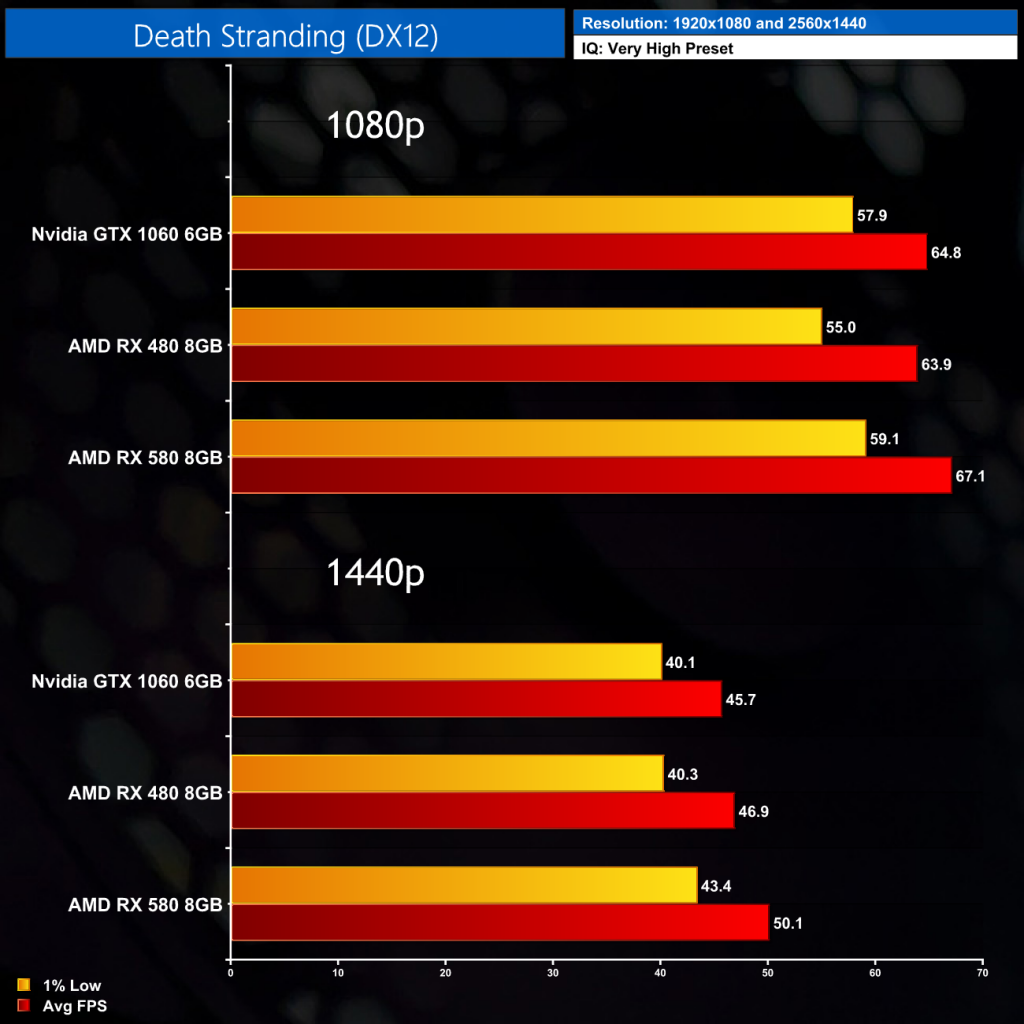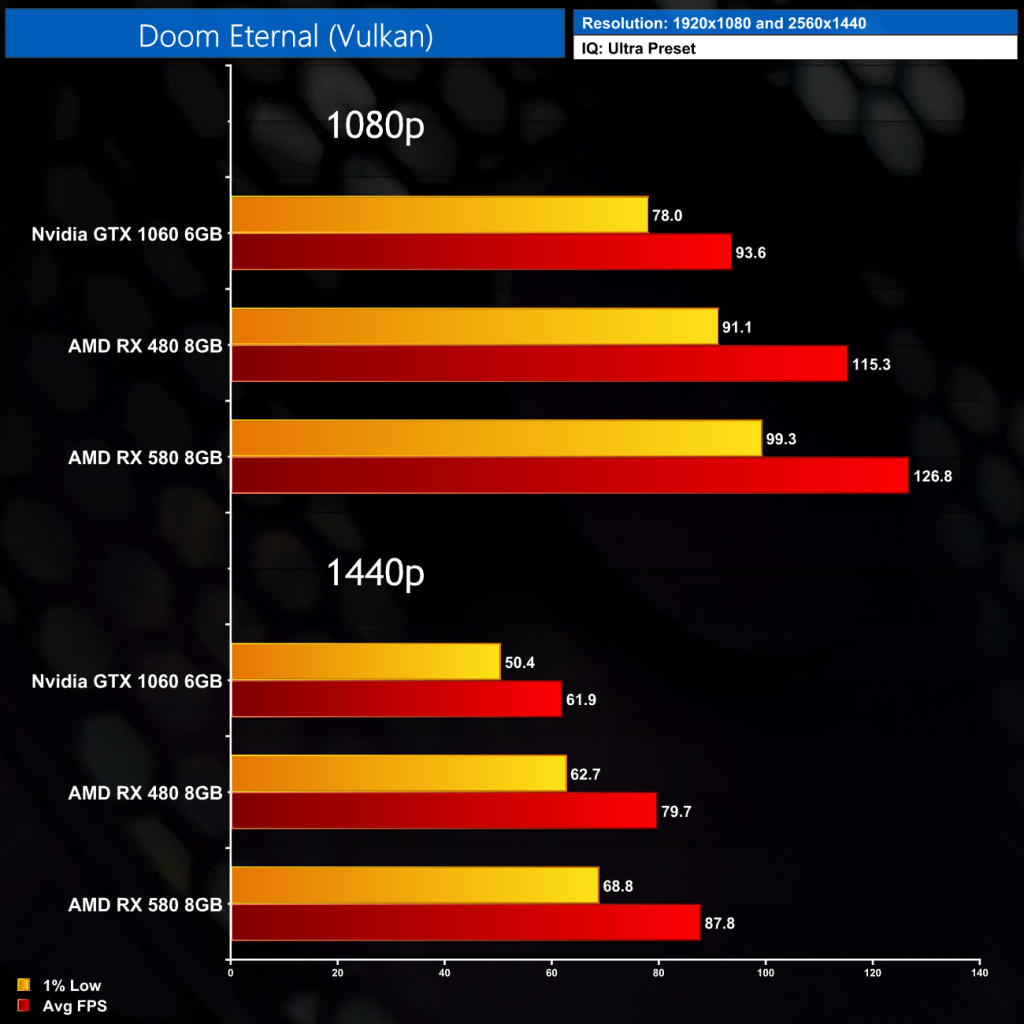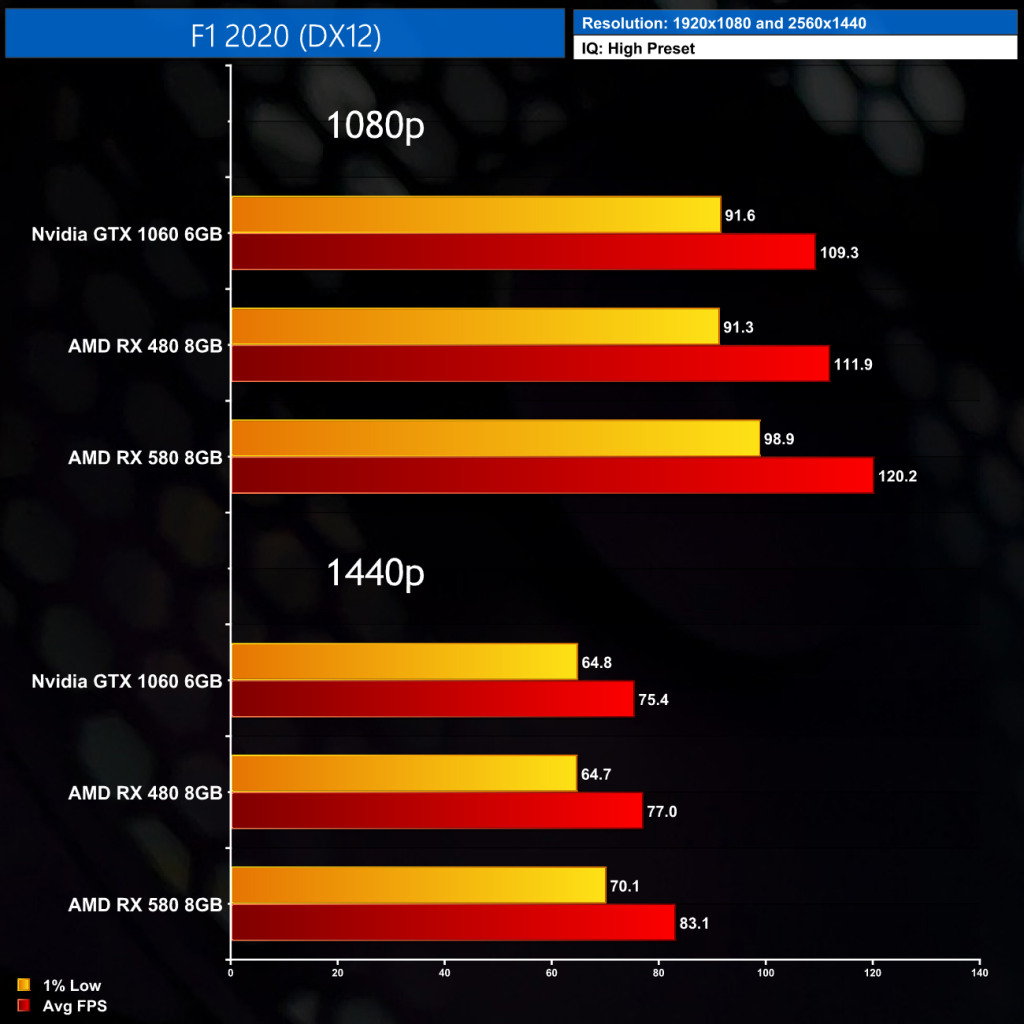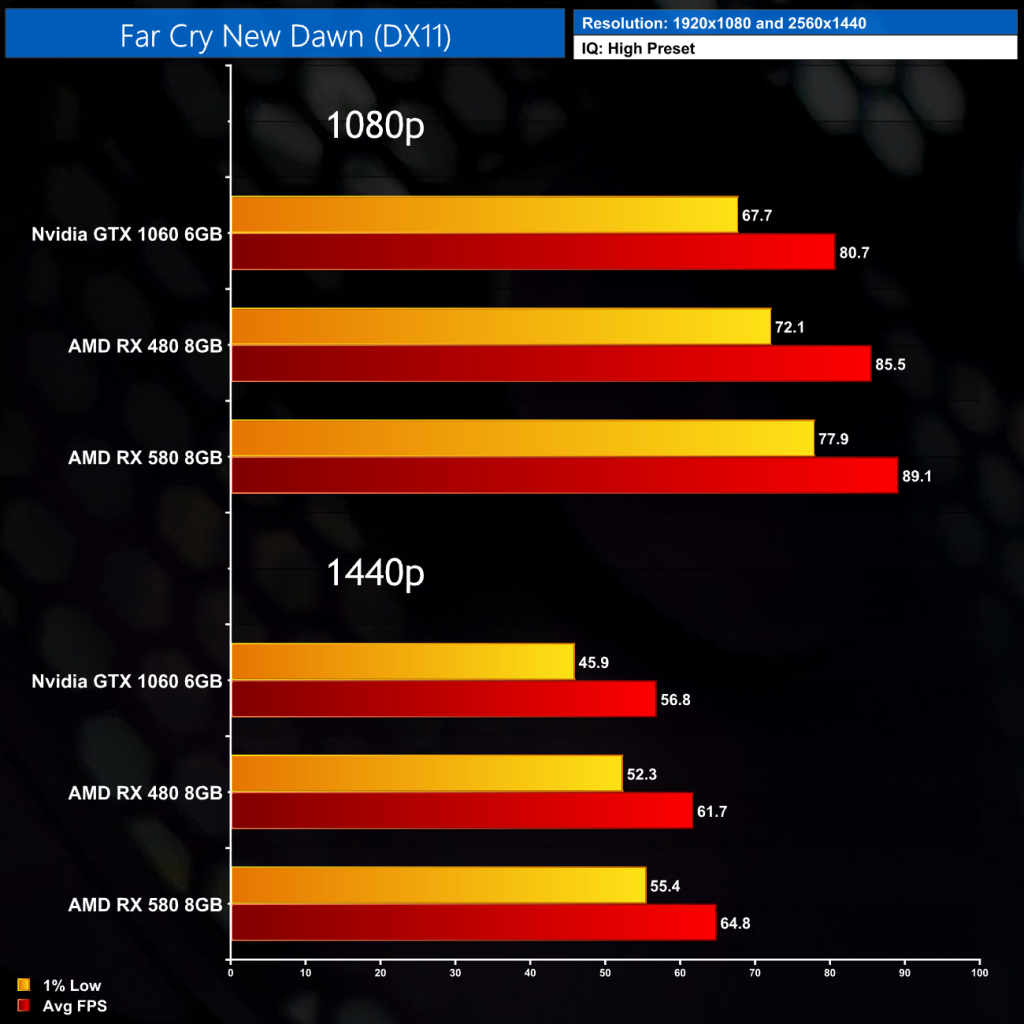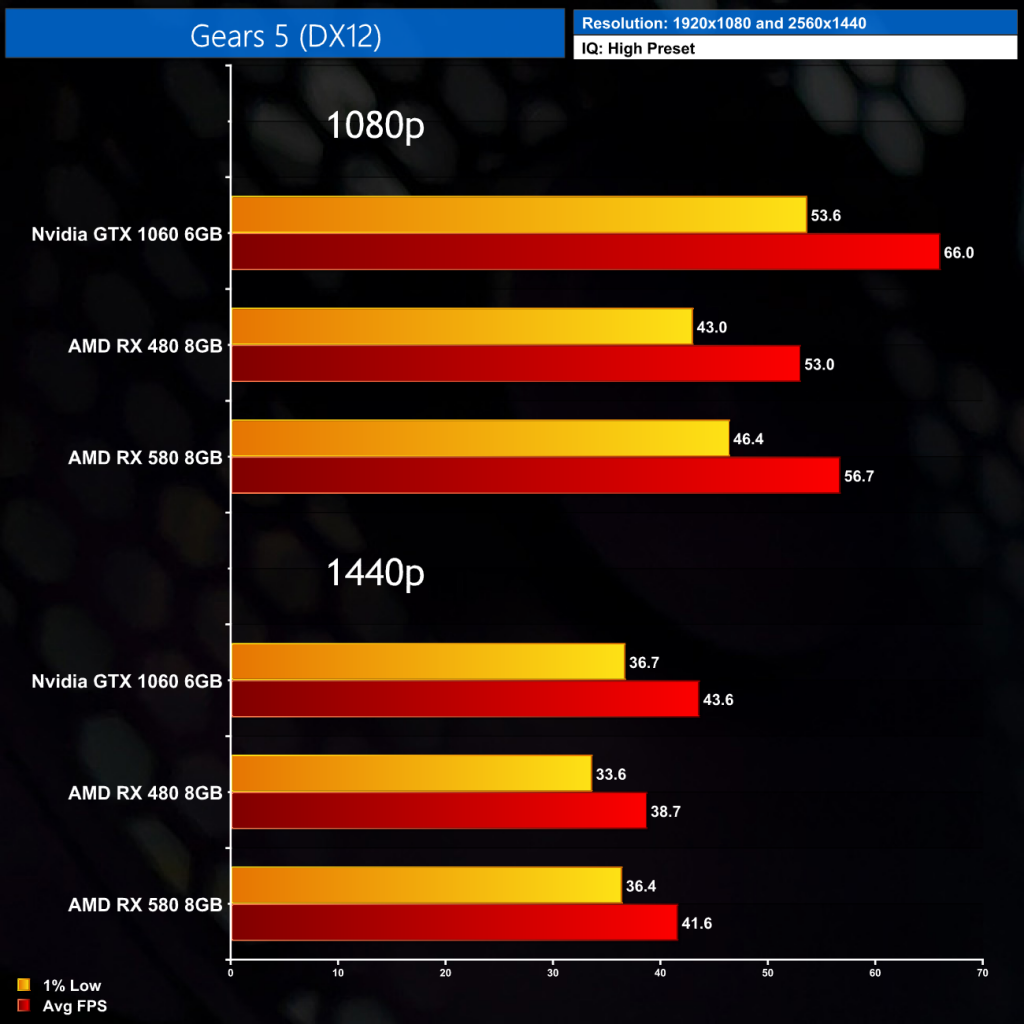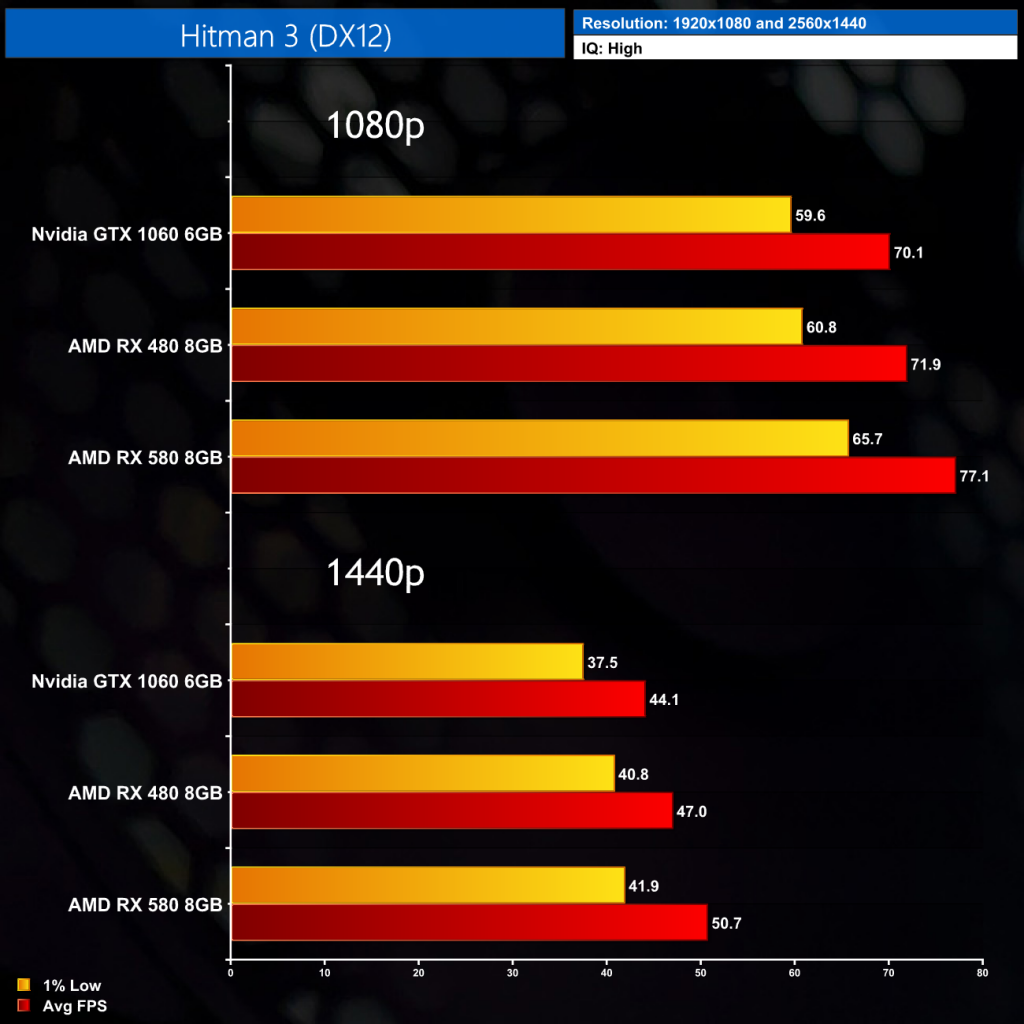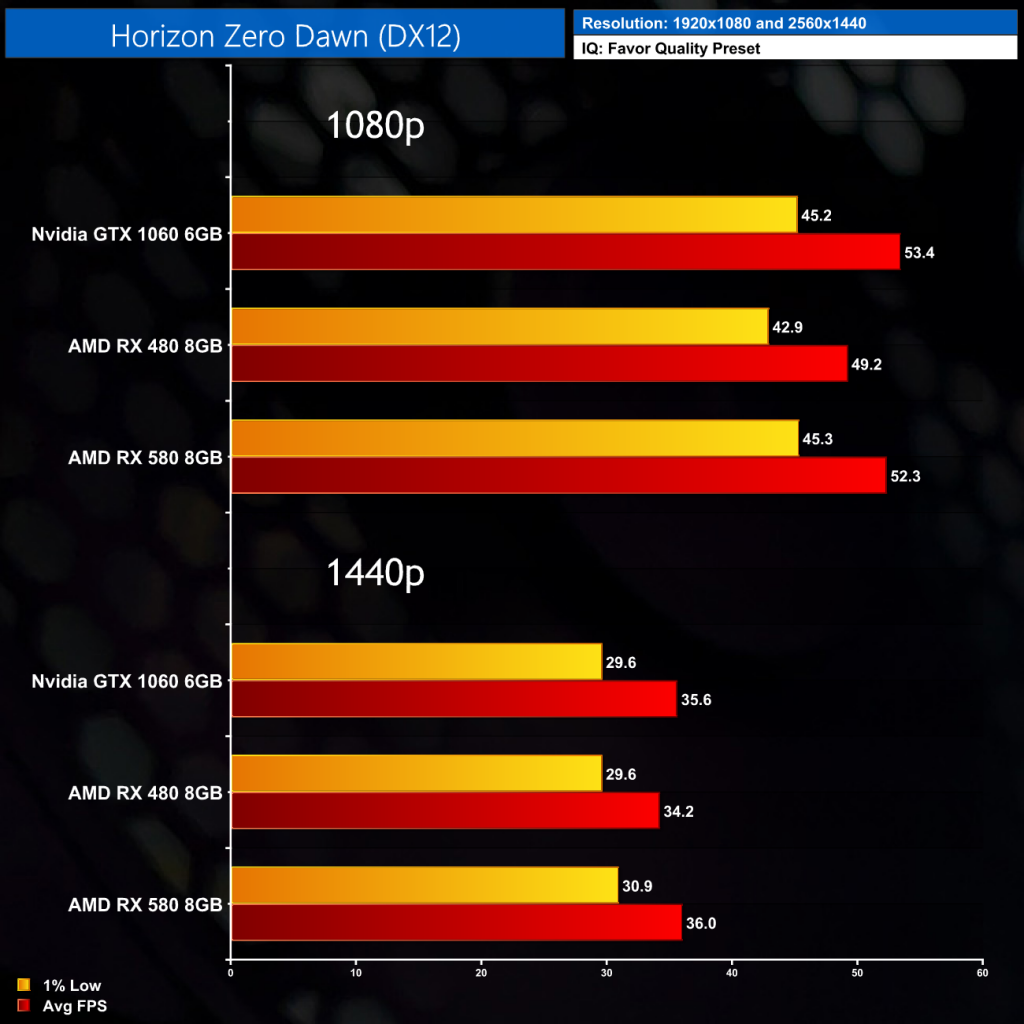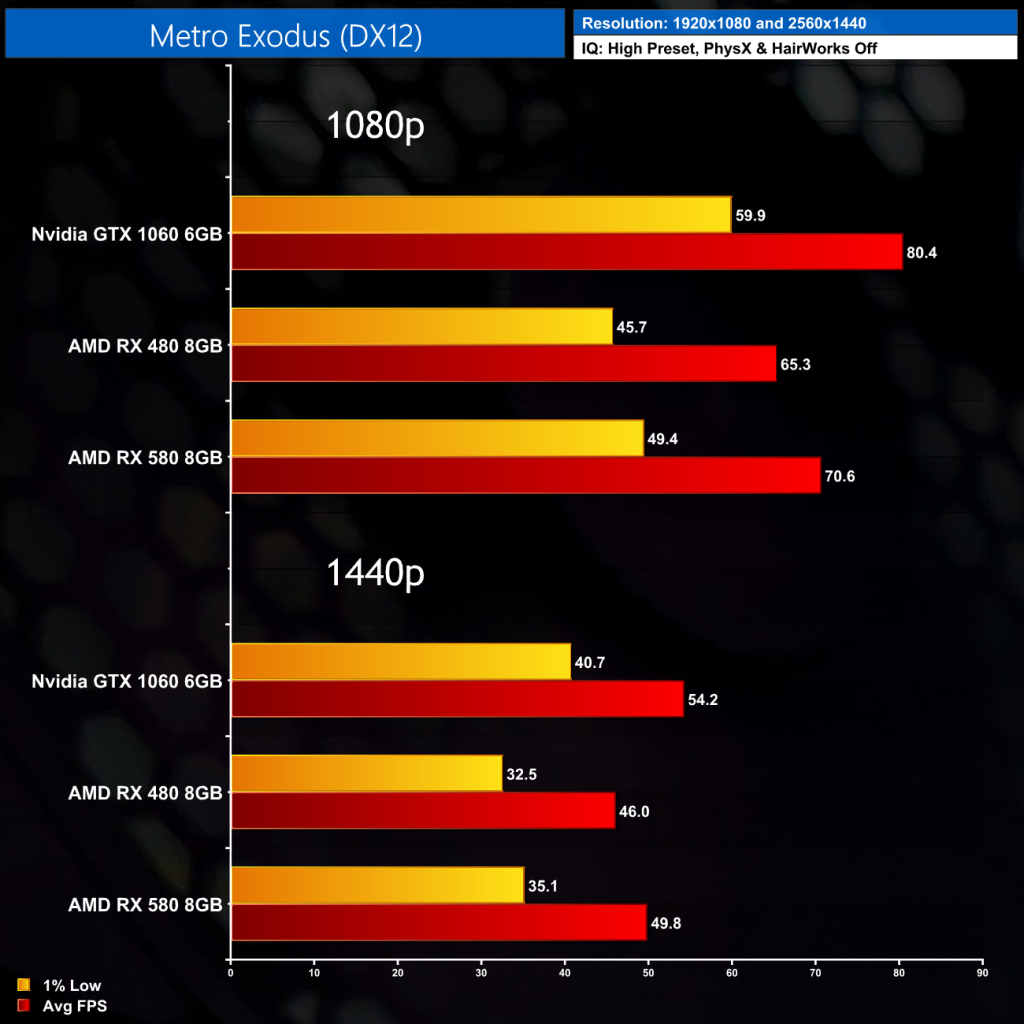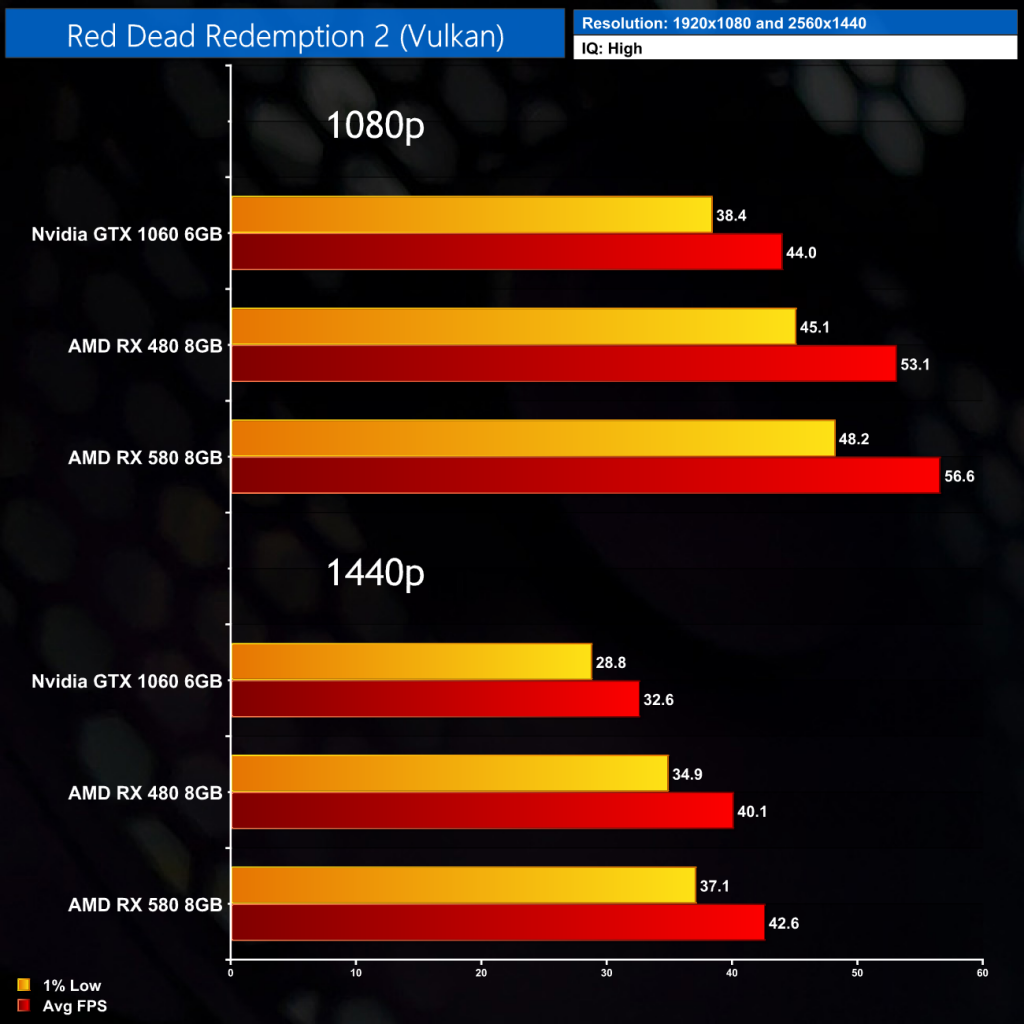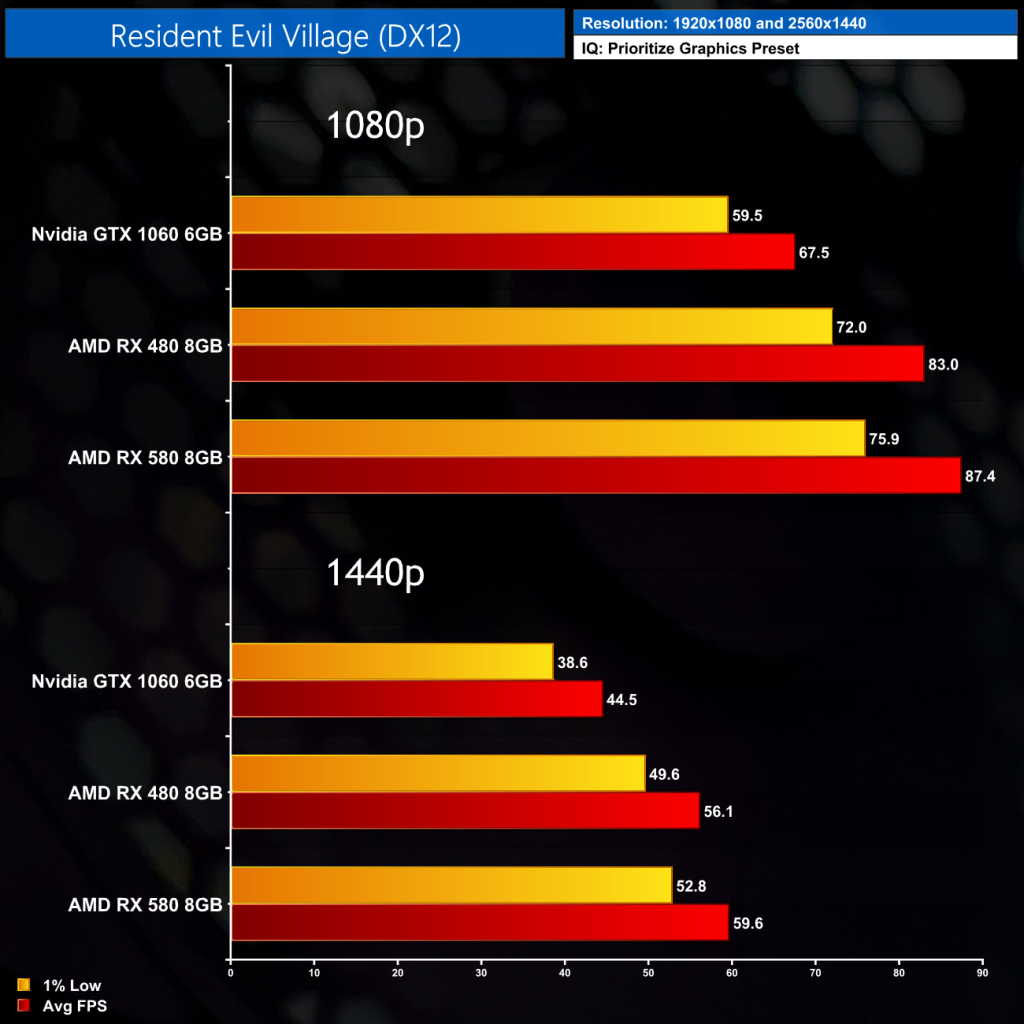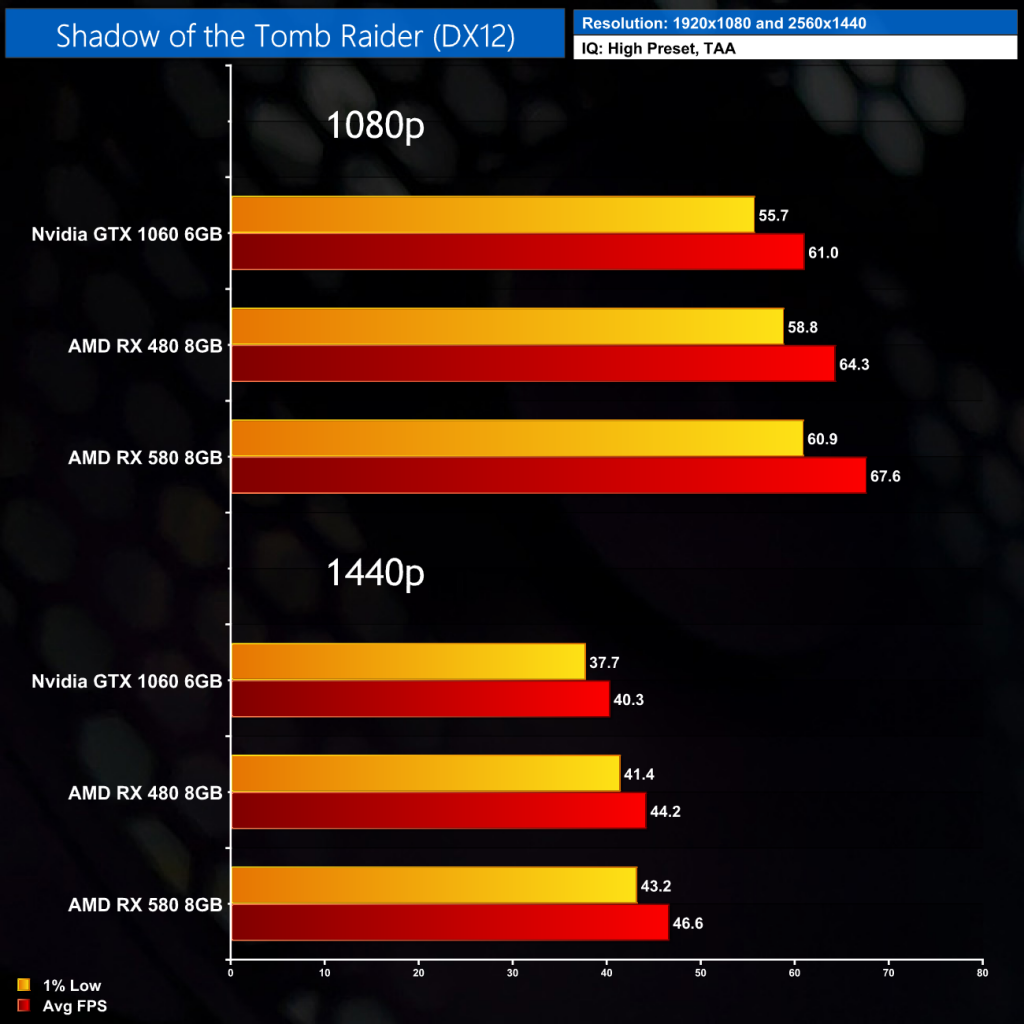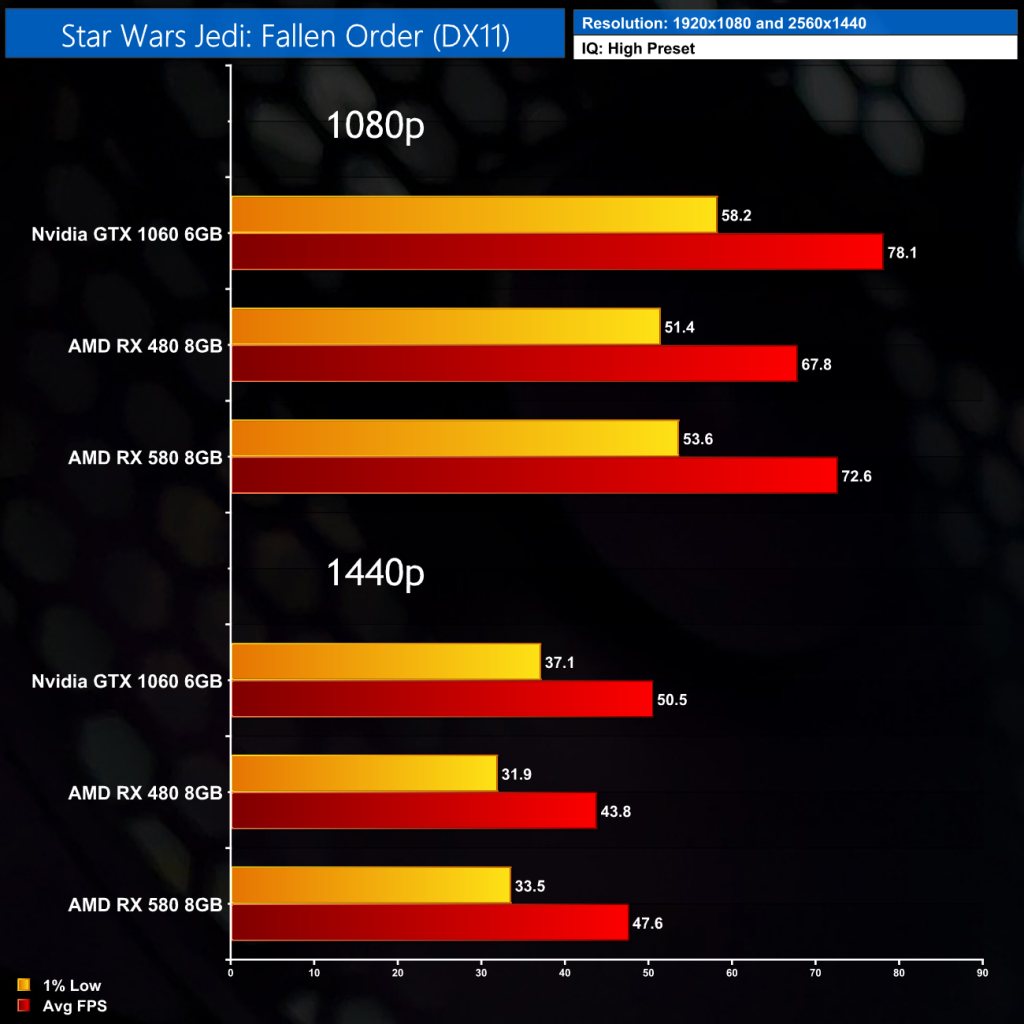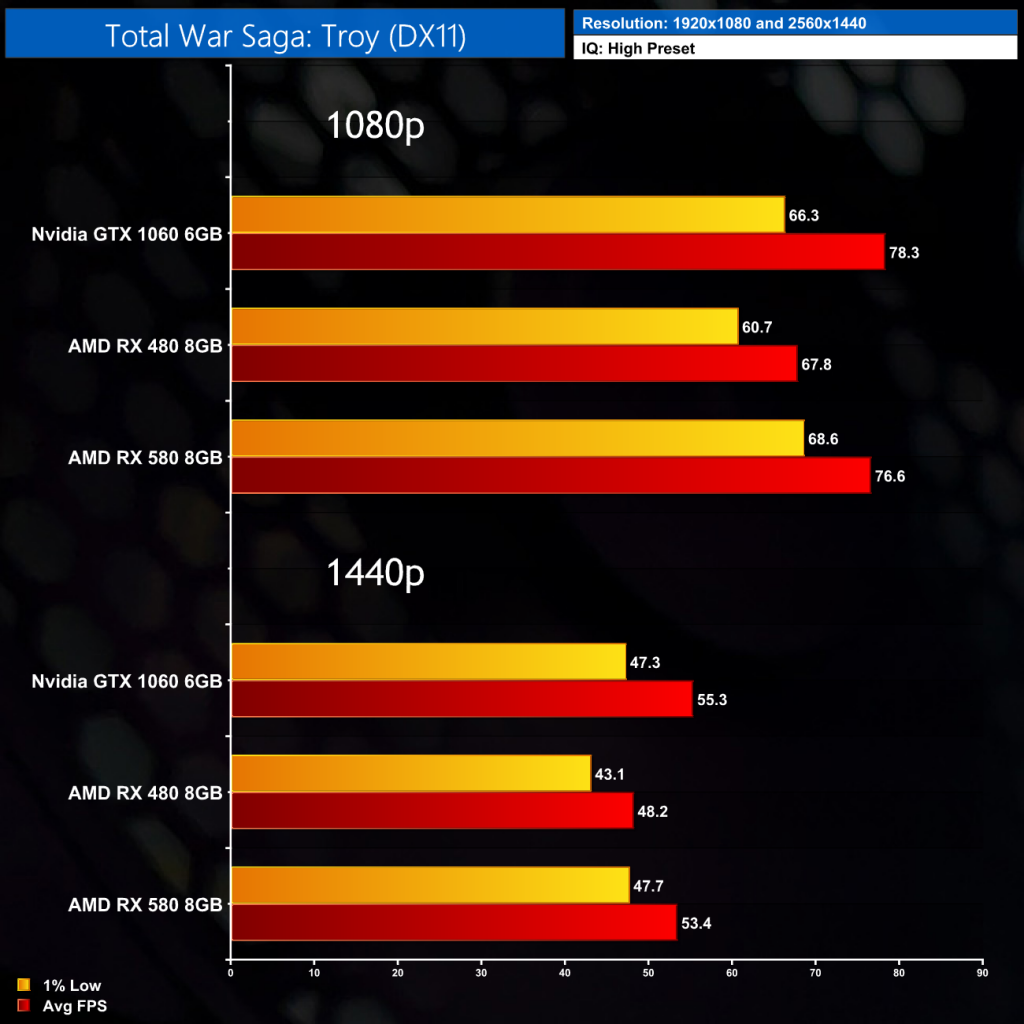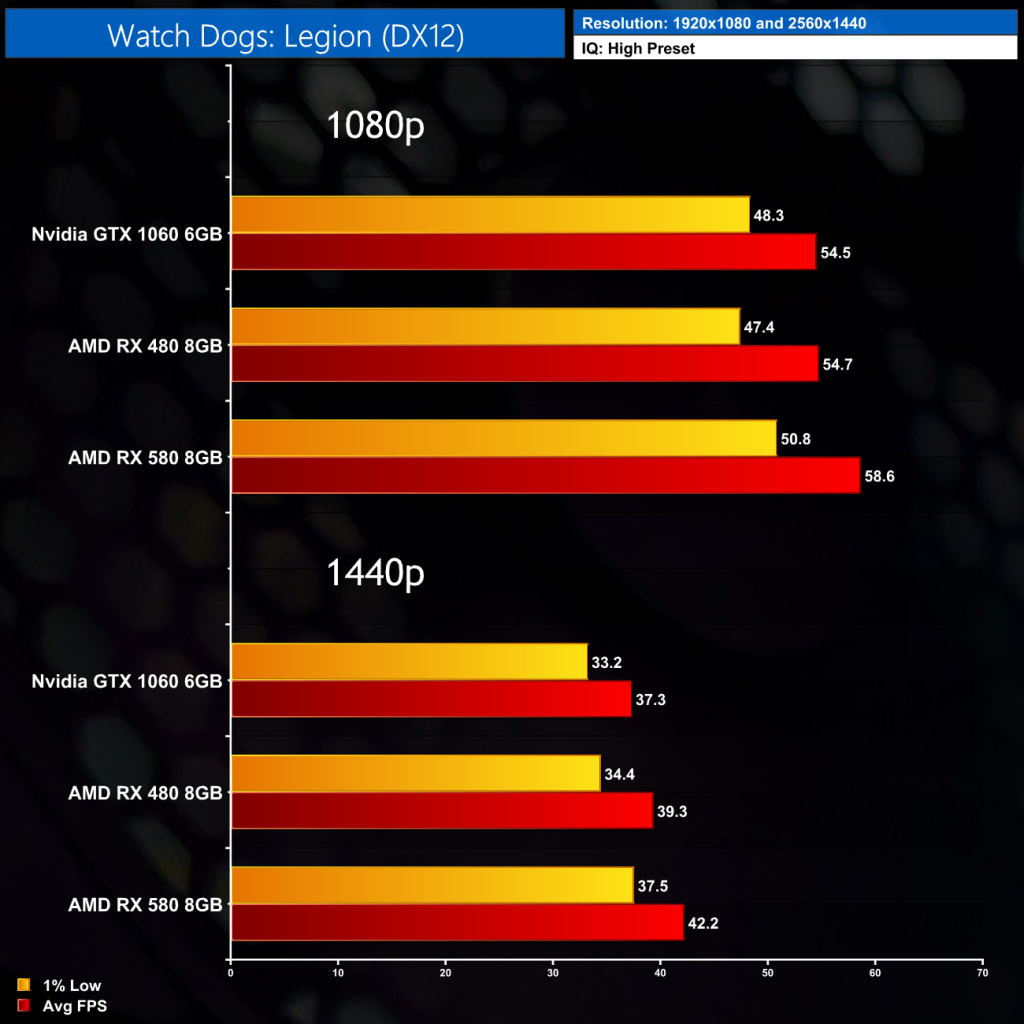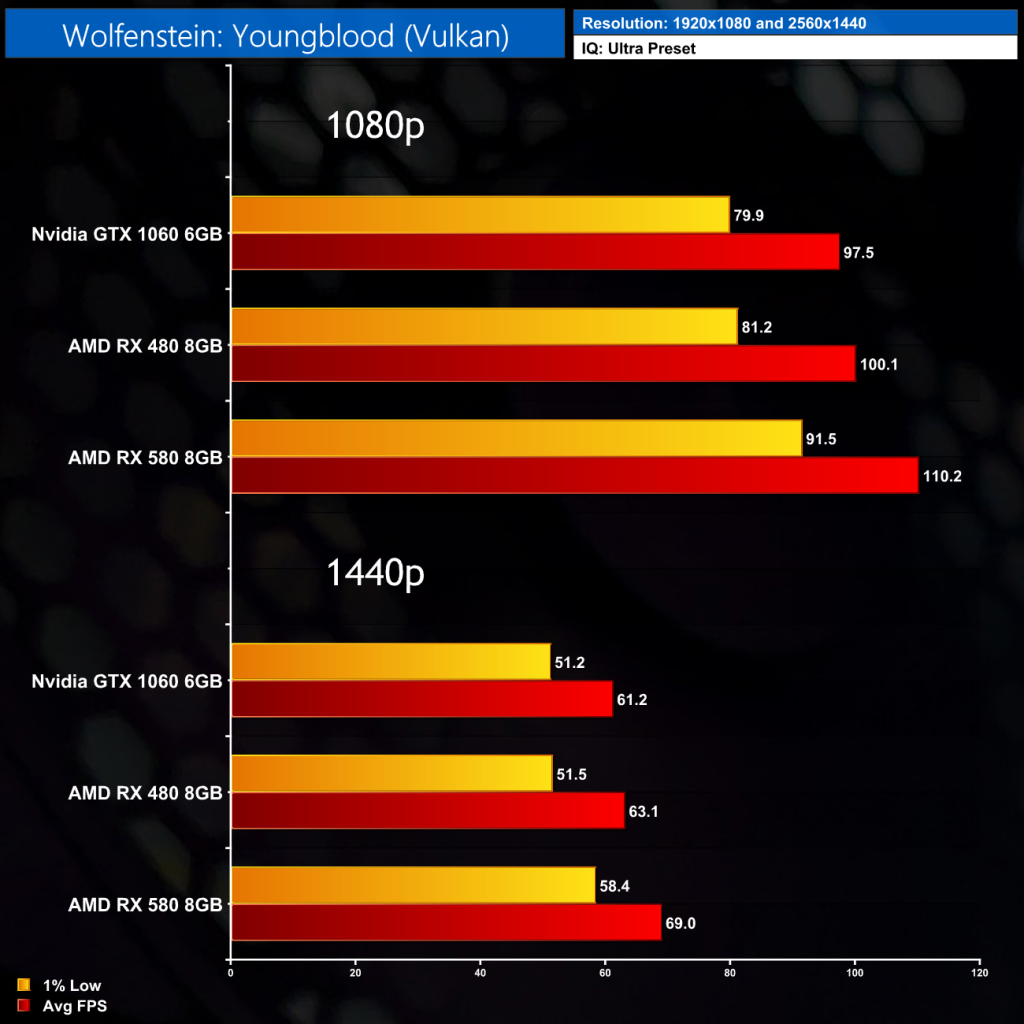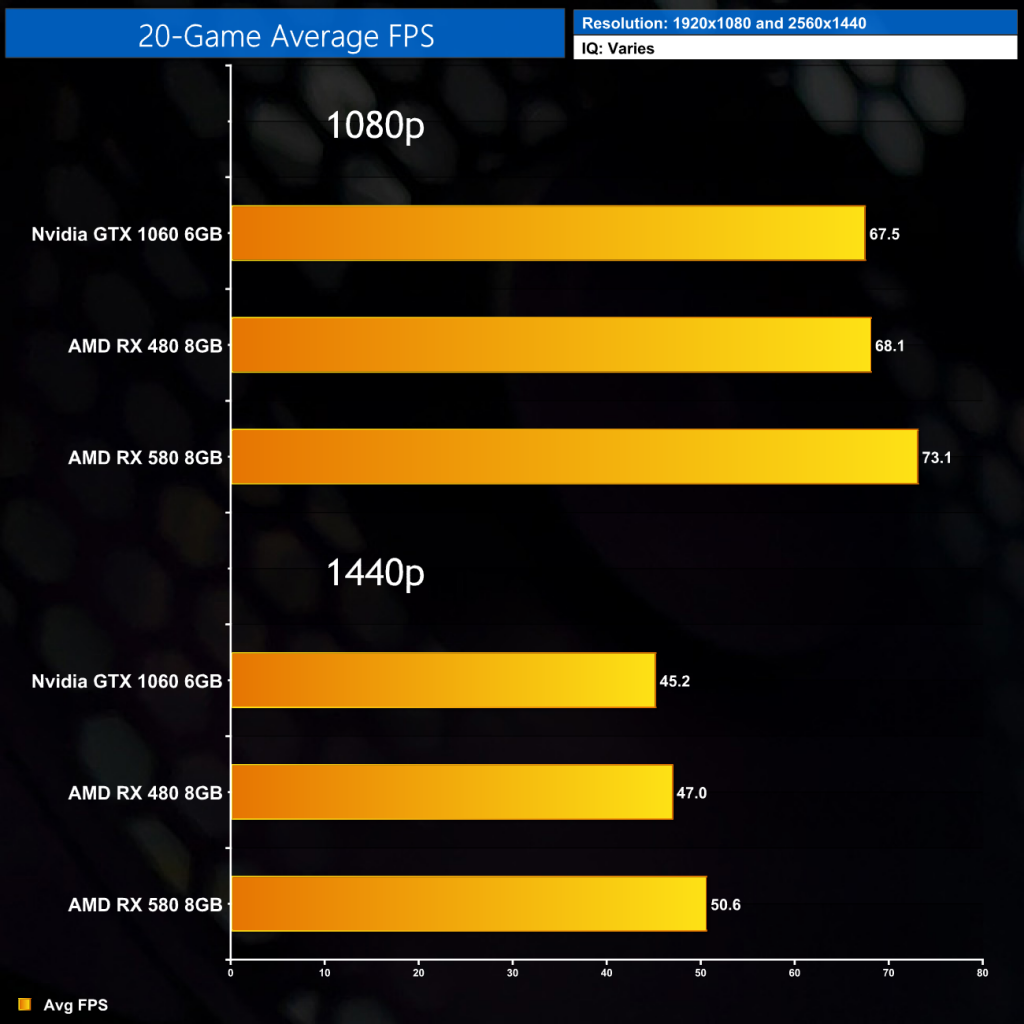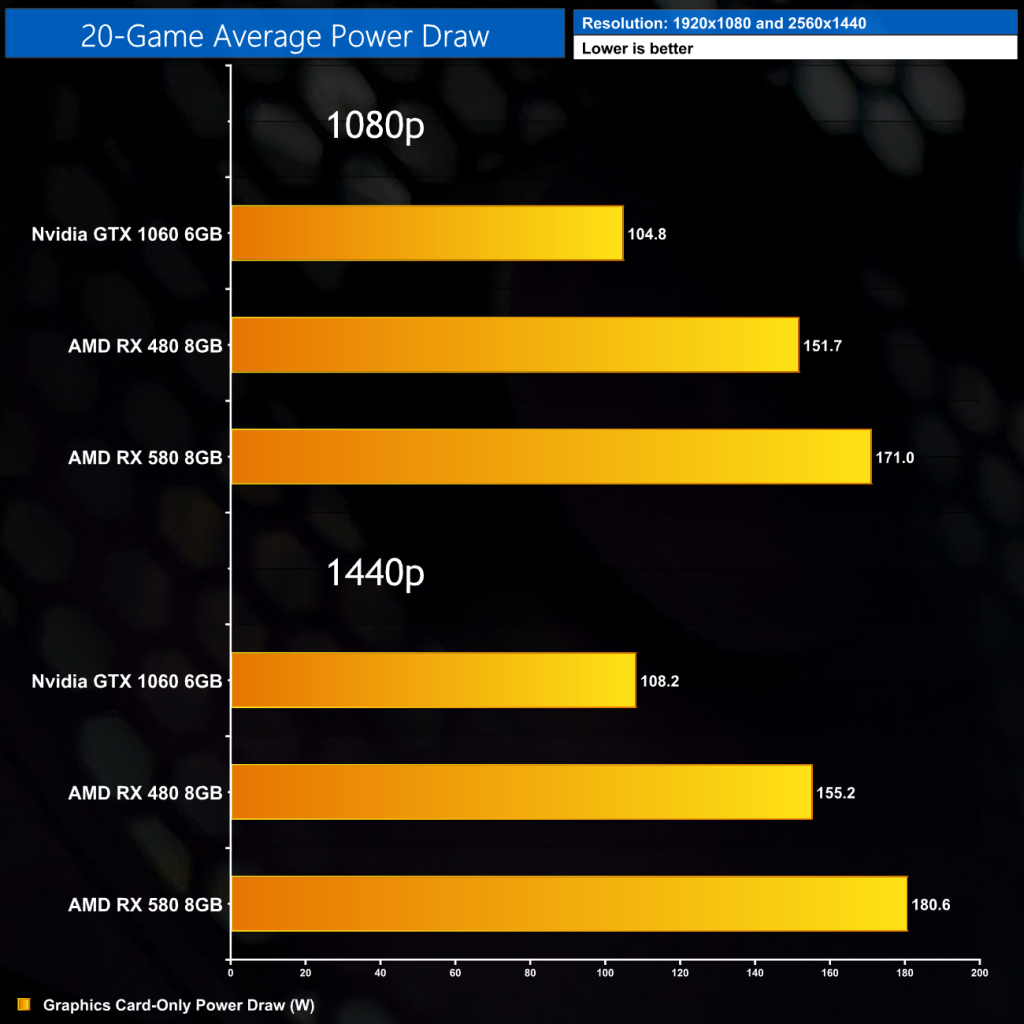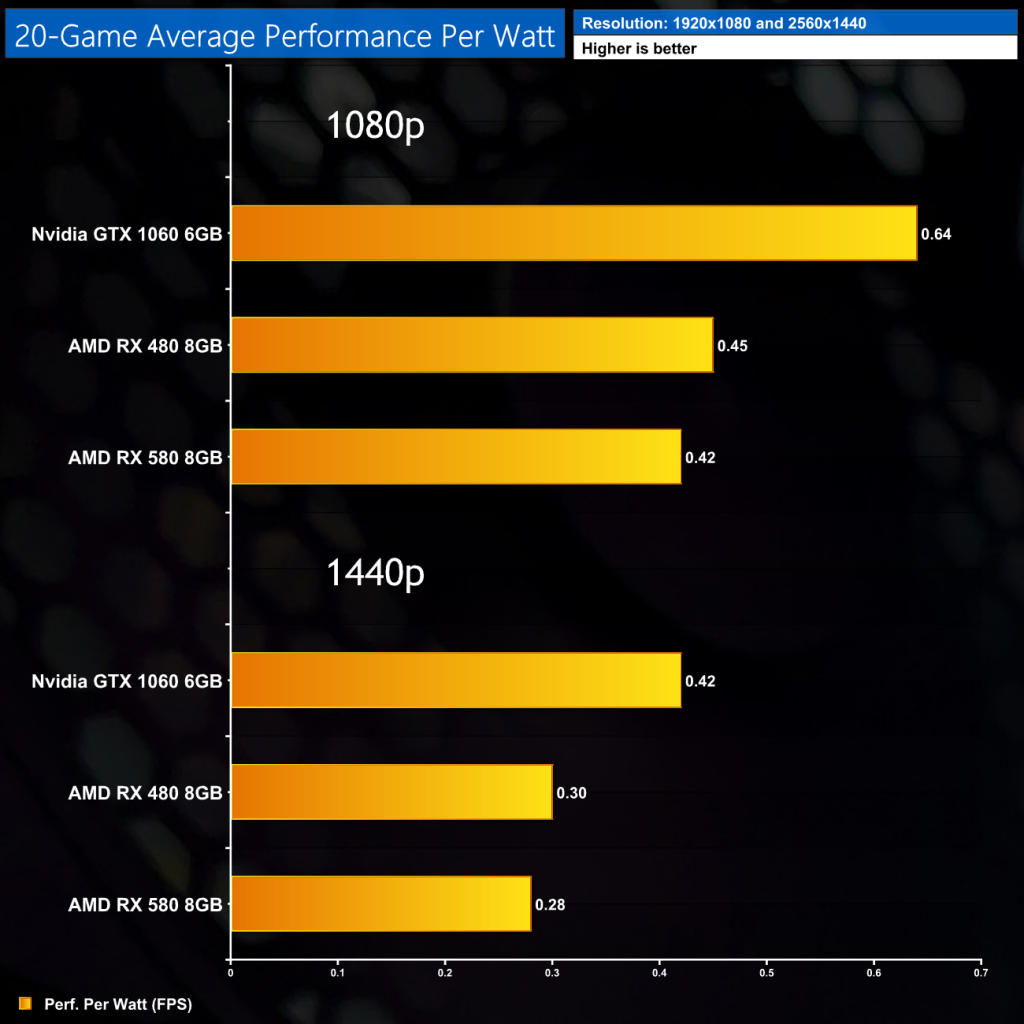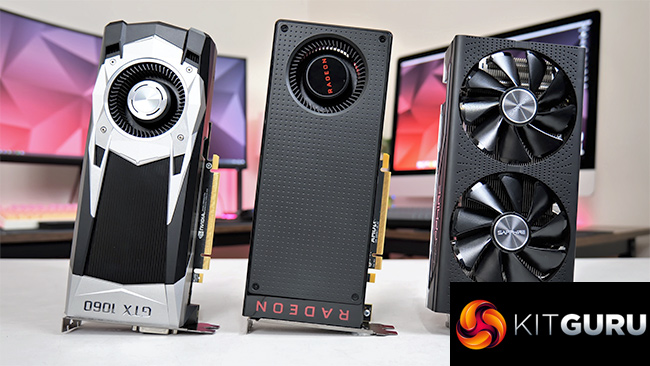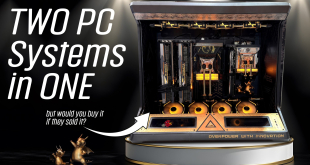It may be hard to believe, but we are approaching the fifth anniversary of the GTX 1060's original launch, and the same can be said for AMD's RX 480. Both GPUs have acquired somewhat of a legendary status within the PC community, with the GTX 1060 still ranking as the single most popular GPU according to Steam's Hardware Survey. It's high time, then, to revisit these GPUs and find out which has aged most gracefully in 2021.
Alongside the GTX 1060 6GB and the RX 480 8GB, we're also including the RX 580 8GB, the card that superseded the RX 480 when it launched in April 2017. All three GPUs have been tested in twenty games, at 1080p and 1440p resolutions. Do note that we opted to use ‘High' settings in most games, instead of ‘Very High' or ‘Ultra' settings, to ensure the data presented is both more realistic, and more useful, for this calibre of graphics card.
Test System
We test using a custom built system from PCSpecialist, based on Intel’s Comet Lake-S platform. You can read more about it over HERE, and configure your own system from PCSpecialist HERE.
| CPU |
Intel Core i9-10900K
Overclocked to 5.1GHz on all cores |
| Motherboard |
ASUS ROG Maximus XII Hero Wi-Fi
|
| Memory |
Corsair Vengeance DDR4 3600MHz (4 X 8GB)
CL 18-22-22-42
|
| Graphics Card |
Varies
|
| System Drive |
500GB Samsung 970 Evo Plus M.2
|
| Games Drive | 2TB Samsung 860 QVO 2.5″ SSD |
| Chassis | Fractal Meshify S2 Blackout Tempered Glass |
| CPU Cooler |
Corsair H115i RGB Platinum Hydro Series
|
| Power Supply |
Corsair 1200W HX Series Modular 80 Plus Platinum
|
| Operating System |
Windows 10 2004
|
For the cards used, Nvidia's GTX 1060 Founders Edition is joined by the AMD RX 480 8GB reference card. There was no reference model for the RX 580 however, so we are using the Sapphire's Pulse model. The latest drivers at the time of testing were used, so for Nvidia that was the 466.77 driver, and for AMD we used the Adrenalin 21.5.2 driver. All twenty games are as follows, ordered alphabetically.
Game benchmarks
Kicking off with Assassin's Creed Valhalla, we're testing with the High preset. At 1080p it's all very close between the three GPUs we're testing, with the RX 580 proving nominally faster than the GTX 1060, but only by a single frame on average. Relatively speaking, that gap does increase at 1440p, with the RX 580 proving 5% faster than the GTX 1060, buts that's only a difference of 2FPS. No GPU was able to prevent the 1% lows dipping below 30FPS at this resolution either.
Next up is Borderlands 3 and once more the GTX 1060 and RX 480 are absolutely neck-and-neck here, both delivering fractionally less than 50FPS on average. The RX 580 delivers an extra 7% performance compared to the 1060, but again, whether you'd notice that extra 3.6FPS is another matter. At 1440p, the GTX 1060 falls away, actually coming in 12% slower than the RX 480, though neither GPU is delivering particularly smooth frame rates at this resolution.
Remedy's Control is next and this is a very interesting one. Over the last couple of years it's become a bit of a poster child for Nvidia, as the game is heavily optimised for the Turing and Ampere architectures. It seems Pascal wasn't quite given the same attention however, as the RX 580 crushes the 1060 here – the AMD GPU is actually 20% faster at 1080p. At 1440p, the results do get compressed somewhat, but the RX 480 and 580 are still convincing winners here, something I certainly didn't expect when testing this title.
Meanwhile, for Cyberpunk 2077 we opted for High settings, but that really is too stern a test for these GPUs, even at 1080p. For what it's worth, both Polaris GPUs deliver higher frame rates than the GTX 1060 across the board, but the results are so compressed it hardly matters. You'd definitely want to drop down to medium, or even low settings with this calibre of GPU when playing Cyberpunk.
Next up is one of the more recently-released games we are testing, and it's Days Gone. Using the High preset, all three GPUs are good for an average of 60FPS at 1080p. The RX 580 is fractionally faster than the 1060, but by less than 3%, so it really is too close to call. That also goes for 1440p, where we're getting a very playable experience from any of the GPUs tested, with the GTX 1060 slotting in between the RX 480 and the 580.
Death Stranding is a particularly well optimised title and we were actually able to get away with maximum settings here, with all three GPUs still averaging over 60FPS at 1080p – so that's really not a bad showing for cards that are 4-5 years old. The RX 580 is strongest at 1440p, delivering about a 10% boost over the GTX 1060, though the RX 480 sits much closer to its Pascal rival.
Moving on, Doom Eternal is arguably the first game we've tested where there's a real, tangible difference between these three GPUs, as the Polaris cards absolutely crush it here. The RX 480, for instance, is 23% faster than the GTX 1060, while the RX 580 turns that into a huge 36% advantage. You are still getting a great gaming experience from the 1060, it's just the AMD cards are that much faster. The same goes for 1440p, where the 1060 is still averaging over 60FPS, but the RX 580 is 42% faster, delivering just shy of 90FPS.
As for F1 2020, despite being highly impressive in terms of the visuals, this game delivers great performance, with all three cards tested hitting over 100FPS at 1080p. Once more though, it is the Polaris GPUs coming out on top, though the RX 480 and 1060 are basically neck and neck. That's the same at 1080p or 1440p, with the RX 580 coming on strongest at the latter resolution, where its 10% faster than the GTX 1060.
Next is Far Cry New Dawn, and despite being a DX11 title, it's the AMD GPUs which are again the faster cards here, when typically we'd expect Nvidia to be stronger. The GTX 1060 is 6% slower than the RX 480 for instance, while it's 9% behind the RX 580 at 1080p. The AMD GPUs do even better at 1440p as well, with the RX 580 beating the 1060 by a 14% margin, though it is still worth pointing out the GTX 1060 is still doing a great job here when using the High preset.
Gears 5 however, gives the GTX 1060 its first clear victory over the two Polaris GPUs. At 1080p it proves a whopping 25% faster than the RX 480, though that is cut to 16% when compared to the RX 580, and this is despite Gears being an AMD-sponsored titled. At 1440p, both AMD GPUs catch up significantly however, with just a 2FPS difference between the 1060 and the 580 now, though the 1060 is still decently faster than the 480.
Hitman 3 is another new title released in 2021, but it still runs very well on these GPUs when using high settings. The GTX 1060 and RX 480 are as fast as each other at 1080p, with the RX 580 just edging ahead by a few frames. Not much changes as we step up to 1440p either, the RX 580 is 15% faster than the GTX 1060, but that's a difference of less than 7FPS.
Horizon Zero Dawn is another very close one, with the GTX 1060 just about coming in the fastest of the three GPUs, but I don't think you'd be able to tell the difference when actually gaming. Horizon is also a little too demanding for these cards at 1440p, so you'd want to dial back the settings a bit more to get the frame rates higher.
Moving onto Metro Exodus, this is another title where we see a clear advantage to the GTX 1060. It's 14% faster than the RX 580, increasing to 23% when compared to the RX 480, all at 1080p using the High preset. Things are definitely closer at 1440p, but it's still Team Green that has the advantage in this one, with a 9% lead for the 1060 over the RX 580.
Red Dead Redemption 2 is the complete opposite however, this time it is Team Red in the ascendancy. We are once more seeing double-digit leads for the Polaris GPUs, with the RX 480 proving 21% faster than the GTX 1060 at 1080p. The scaling stays pretty consistent at 1440p as well, though frame rates are lower here, and we can see the GTX 1060 is unable to keep he 1% lows above 30FPS using these settings.
Resident Evil Village continues that trend. GTX 1060 still delivers a very smooth experience at 1080p, but the RX 480 is 23% faster, while the RX 580 is a whopping 30% faster here. The Polaris GPUs deliver a much smoother experience at 1440p too, averaging close to the 60FPS mark, while the GTX 1060 just cannot keep up. Once more, the RX 580 is over 30% faster, so it's definitely a win for AMD.
Next is Shadow of the Tomb Raider and this is a game where all three GPUs perform much closer together. The RX 480 is still just about faster than the GTX 1060 at both 1080p and 1440p, but there's really not a lot in it. The RX 580 however, is between 11-16% faster, though the real-world frame rate difference doesn't seem as significant as those percentages might suggest.
Star Wars Jedi: Fallen Order is actually pretty similar to Shadow of the Tomb Raider, just in reverse. That means the GTX 1060 is the fastest GPU of the three we've tested, but it's still not going to make much of a difference either way. That's particularly the case at 1440p, where it's just 6% faster than the RX 580, though it's 16% faster than the RX 480.
And Total War Saga: Troy shows an almost identical trend to Jedi: Fallen Order, with the GTX 1060 sitting top of the pile, but only a touch ahead of the RX 580. The RX 480 is further back though, proving 13% slower than the 1060 at 1080p. That doesn't really change either as we step up to 1440p, the frame rates are obviously lower, but the scaling is pretty consistent.
Our penultimate game is going to be Watch Dogs: Legion, and once more we're looking at a very close affair. The RX 580 is nominally faster at 1080p, but whether you'd notice 58FPS versus 54FPS is another matter entirely. It does pull away from the GTX 1060 by a 13% margin at 1440p, but that's still a real-world difference of just 5FPS.
Lastly, we close with another strong victory for Team Red. In Wolfenstein: Youngblood, the RX 580 proves 13% faster than the GTX 1060, and that's actually true of both the 1080p and 1440p results. The GTX 1060 is much closer to the RX 480 however, and you would have to say the frame rates are still exceptionally good no matter which of these three GPUs you are using.
Average results
Rounding out the games testing with a look at the average results, it's probably not a surprise to see things are as close as they are. Over the twenty games we tested, at 1080p there is less than a single percentage point difference between the GTX 1060 and RX 480, five years on from their release. The RX 580 is the fastest of the three GPUs however, coming in 8% ahead of the GTX 1060, but it's still not a crushing victory. That does increase at 1440p however, to a 12% margin over the 1060, while the RX 480 also proves 4% faster than Nvidia's card at that resolution.
One thing we did also log over the course of the twenty games, was power draw. Measuring power of just the graphics card, we can see the GTX 1060 is easily the least power-hungry GPU, drawing about 45W less than the RX 480, and 65W less than the RX 580 at 1080p.
Interestingly, that means the GTX 1060 is easily the most efficient of these three GPUs, delivering 42% more performance per Watt when compared to the RX 480, increasing to 52% against the RX 580.
It's certainly something, but to give you an idea of the real-world cost involved – let's say you game for 3 hours a day, 365 days a year. Based on the average UK cost of electricity (18.54p/kWh as of December 2019), the total yearly cost for each of three GPUs is as follows:
- GTX 1060 6GB: £21.28 per year.
- RX 480 8GB: £30.81 per year.
- RX 580 8GB: £34.71 per year.
So while it can certainly add up over time, and there also other considerations such as heat, the difference in operating cost based on the efficiency numbers isn't as large as you might think.
Closing Thoughts
Thus concludes our ‘Pascal vs Polaris' revisit. Five years on (or four, in the case of the RX 580), it has been fascinating to see how these cards perform today. As shown, AMD’s RX 580 has aged the best of the three GPUs we tested, but I really do think it’s quite impressive just how well the GTX 1060 and RX 480 are still able to manage in 2021 – 60FPS gameplay is very achievable at 1080p when using high image quality settings, even in the latest games, and that really is good going.
One thing I did notice though, while there's not a lot of difference between all three GPUs in most of the games we tested, in the titles where the RX 480 and RX 580 came in faster than the GTX 1060, it tended to be by a larger margin than the games where the GTX 1060 proved the faster card.
Take the likes of Doom Eternal, Red Dead Redemption 2, Control and Resident Evil Village – there the RX 580 came in 20%, 30%, even 40% faster than the GTX 1060. On the other hand, the GTX 1060 was at most 16% faster than the RX 580, and that was in Gears 5. Granted, on most occasions the GTX 1060 was still doing very well, but there are a handful of examples where the AMD GPUs just delivers that next level of performance.
Interestingly, the GTX 1060 does seem to be selling for slightly less on eBay UK, with prices typically around the £220-230 mark. The RX 480 meanwhile is more like £280, with the RX 580 pushing up to about £300 and sometimes higher.
If you’re really desperate for a new GPU now, personally I’d go for the GTX 1060 and save the cash for when current-gen GPUs are available at more reasonable prices. That will depend on what games you play, as you may feel it worthwhile to spend more to get more, particularly if you mostly play the likes of Doom Eternal or Red Dead Redemption 2.
The main takeaway, however, really has to be just how great it is to see all three of these GPUs still delivering very solid performance in 2021.
Discuss on our Facebook page HERE.
KitGuru says: Do you own one of these GPUs? If so, how's it holding up for you? Current-gen cards are clearly faster, but it's impressive to see there's still life left in these 5 year-old GPUs.
 KitGuru KitGuru.net – Tech News | Hardware News | Hardware Reviews | IOS | Mobile | Gaming | Graphics Cards
KitGuru KitGuru.net – Tech News | Hardware News | Hardware Reviews | IOS | Mobile | Gaming | Graphics Cards


